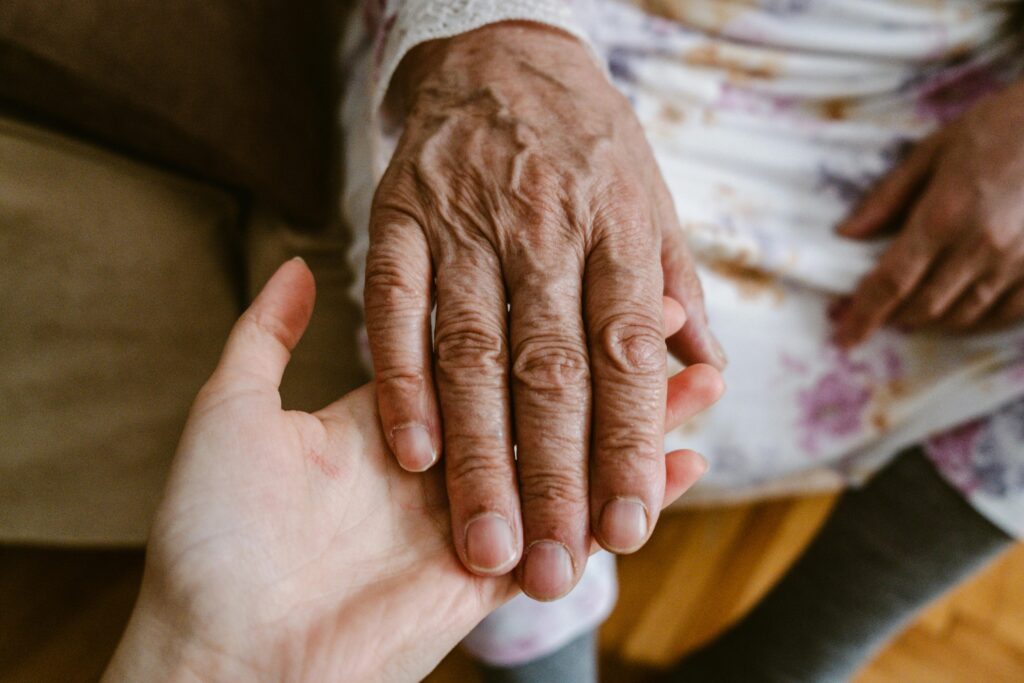Arthritis is a common medical condition that refers to inflammation of the joints. There are over 100 different types of arthritis, but the two most common forms are osteoarthritis and rheumatoid arthritis.
- Osteoarthritis: This type of arthritis is often referred to as “wear and tear” arthritis and typically occurs with age or as a result of joint injury or overuse. In osteoarthritis, the cartilage that cushions the ends of bones within the joint gradually wears away, leading to pain, stiffness, and reduced mobility.
- Rheumatoid arthritis: Unlike osteoarthritis, rheumatoid arthritis is an autoimmune disorder where the body’s immune system mistakenly attacks its own tissues, including the joints. This results in inflammation of the joint lining (synovium), leading to pain, swelling, stiffness, and potential joint damage over time.
Arthritis can affect any joint in the body, including the hands, knees, hips, spine, and shoulders. Common symptoms of arthritis include joint pain, swelling, stiffness, limited range of motion, and joint deformities in advanced cases.
Treatment for arthritis aims to manage symptoms, reduce inflammation, improve joint function, and prevent further joint damage. This may include medications, physical therapy, lifestyle changes, and in severe cases, surgery.
It’s important to note that arthritis is a chronic condition, meaning it typically persists over time. However, with proper management and care, many individuals with arthritis can lead active and fulfilling lives. If you suspect you may have arthritis or are experiencing joint pain and stiffness, it’s essential to consult with a healthcare professional for an accurate diagnosis and personalized treatment plan.
However, emerging perspectives such as Biodecoding shed light on the emotional underpinnings of this complex ailment. According to Biodecoding principles, individuals with arthritis tend to be highly critical of themselves and others. They harbor a tendency to dwell on the negatives in life, struggling to express their needs and denying themselves moments of self-care and appreciation.
The emotional landscape of arthritis is multifaceted. Those afflicted often face a barrage of self-criticism, creating an internal environment of harsh judgment and diminished self-worth. This inner turmoil can manifest externally as difficulties in seeking support, expressing emotions, and embracing self-love. The cycle continues as individuals with arthritis may find themselves trapped in a cycle of negativity, unable to break free from patterns of self-denial and inflexibility.
To address the emotional roots of arthritis, a holistic approach centered on self-love, self-awareness, and flexibility is paramount. Cultivating a mindset of compassion towards oneself and others is the first step towards emotional healing. This involves acknowledging and challenging the inner critic, practicing self-care rituals, and fostering a positive outlook on life’s challenges.
Self-knowledge and understanding play pivotal roles in this journey. Delving into the underlying beliefs and thought patterns that contribute to self-criticism and rigidity can unveil opportunities for growth and transformation. It’s about unraveling the layers of conditioning and societal expectations to reconnect with one’s authentic self.
Flexibility, both physical and emotional, is another key aspect. Just as stiff joints can hinder movement, rigid attitudes towards oneself and life’s circumstances can impede emotional well-being. Embracing flexibility means learning to adapt to change, letting go of perfectionism, and allowing oneself the grace to navigate life’s twists and turns.
It’s crucial to remember that life is not a rigid script we must adhere to. It’s a dynamic journey filled with opportunities for learning, growth, and self-discovery. By shedding preconceived notions and judgments, we create space for acceptance, resilience, and genuine connection.
In conclusion, the emotional cause of arthritis according to Biodecoding underscores the profound interplay between mind, body, and spirit. By embarking on a journey of self-love, self-awareness, and flexibility, individuals can unlock the potential for healing and holistic well-being. Let’s embrace this journey with open hearts, curiosity, and a commitment to nurturing our emotional landscape.
If you’re ready to take the next step, this is one of the products I recommend.
Joint Genesis is a brand-new, doctor-formulated joint health supplement, developed from Ivy League research and backed by real-world results.
Its proprietary formula is the first in the world to combine four clinically proven joint-supporting nutrients, an advanced, patented ingredient shown to increase crucial hyaluronan molecules in synovial fluid by 10 times.
This unique, cutting-edge blend supports joint health in a newly discovered way, by rehydrating and thickening the naturally jello-like synovial fluid in our joints.
Ivy League research and dozens of clinical studies have now proven that rehydrating and thickening synovial fluid helps promote:
It’s important to emphasize that this post is educational and not a substitute for professional medical advice. Always consult with a healthcare provider for proper diagnosis and treatment.
I hope this can provide some relief by highlighting that changing our mindset can alleviate symptoms, especially when we understand their causes and recognize our power to effect change. We are in control of our lives and have the ability to make positive transformations.
With love Ana!

